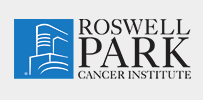Sorafenib Tosylate and Everolimus in Treating Patients With Advanced Solid Tumors and Metastatic Pancreatic Cancer That Does Not Respond to Gemcitabine Hydrochloride
| Status: | Archived |
|---|---|
| Conditions: | Cancer, Cancer, Pancreatic Cancer |
| Therapuetic Areas: | Oncology |
| Healthy: | No |
| Age Range: | Any |
| Updated: | 7/1/2011 |
| Start Date: | August 2009 |
A Phase I/II Study of Sorafenib and Everolimus in Patients With Advanced Solid Tumors and Gemcitabine-Refractory Metastatic Pancreatic Cancer
RATIONALE: Sorafenib tosylate and everolimus may stop the growth of tumor cells by blocking
some of the enzymes needed for cell growth. Sorafenib tosylate may also stop the growth of
pancreatic cancer by blocking blood flow to the tumor. Giving sorafenib tosylate together
with everolimus may kill more tumor cells. PURPOSE: This phase I/II trial is studying
the side effects and best dose of everolimus when given together with sorafenib tosylate and
to see how well they work in treating patients with advanced solid tumors and metastatic
pancreatic cancer that does not respond to gemcitabine hydrochloride.
PRIMARY OBJECTIVES: I. To determine the 6-month overall survival of patients with previously
treated gemcitabine-refractory metastatic pancreatic cancer treated with the combination of
sorafenib and everolimus. II. To determine the recommended Phase II dose of everolimus when
administered in combination with sorafenib in patients with advanced solid tumors.
SECONDARY OBJECTIVES: I. To determine the response rate, median survival, time to
progression, CA 19.9 decline and toxicity spectrum of the combination in this patient
population. II. To characterize the pharmacokinetic profiles of sorafenib and everolimus
when given in combination. III. To explore the biomarkers that correlate with response to
the study combination in patients previously treated with gemcitabine-refractory metastatic
pancreas cancer. OUTLINE: This is a phase I, dose-escalation study of everolimus, followed
by a phase II study. Patients receive oral everolimus once daily and oral sorafenib
tosylate twice daily on days 1-28. Courses repeat every 28 days in the absence of disease
progression or unacceptable toxicity. After completion of study treatment, patients are
followed every 3 months for up to 1 year.
We found this trial at
2
sites
13001 E. 17th Pl.
Aurora, Colorado 80045
Aurora, Colorado 80045
303-724-5000

University of Colorado Cancer Center - Anschutz Cancer Pavilion The University of Colorado Denver |...
Click here to add this to my saved trials
Roswell Park Cancer Center Institute Welcome to Roswell Park Cancer Institute (RPCI), America's first cancer...
Click here to add this to my saved trials
